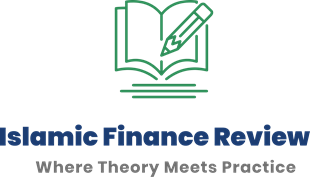Essential Reads for Islamic Finance Enthusiasts
As we launch Islamic Finance Review (IFR), we have curated a selection of must-read books for scholars, professionals, and students eager to explore the evolving landscape of Islamic banking, finance, and ethical investments. These books provide valuable insights into Shariah-compliant financial systems, fintech innovations, risk management, and sustainable investment strategies.
📖 Whether you’re a researcher, practitioner, or just starting your journey in Islamic finance, these books serve as a strong foundation to deepen your understanding.
🔍 Explore our recommended reads and stay ahead in the world of Islamic finance!
- 2024
-
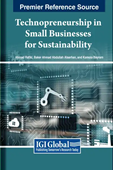
Blockchain Technology and Islamic Finance: Empowering Small Businesses for Financial Sustainability
📌 Overview: This book explores how blockchain technology can support halal micro, small, and medium enterprises (MSMEs) by enhancing financial accessibility, reducing transaction costs, and ensuring transparency—all within Shariah-compliant finance. ✅ Why Read? ✔ Examines the role of blockchain in Islamic finance for sustainable business models. ✔ Offers real-world applications of technology in ethical finance.Early Ridho Kismawadi
-
- 2022
-
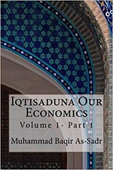
Iqtisaduna (Our Economics)
📌 Overview: This influential work critiques capitalism and socialism from an Islamic economic perspective and proposes an alternative Islamic economic system. ✅ Why Read? ✔ A pioneering work in Islamic economic thought. ✔ Offers a philosophical foundation for Islamic finance and economic justice.Muhammad Baqir al-Sadr
-
- 2020
-

Fundamentals of Islamic Finance
📌 Overview: This book covers the core principles of Islamic finance, such as profit-sharing models, Islamic banking structures, and risk-sharing mechanisms. ✅ Why Read? ✔ A detailed yet beginner-friendly introduction to the subject. ✔ Discusses both theoretical concepts and practical applications.Muhammad Hanif
-
- 2017
-
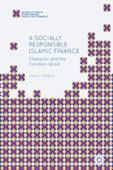
A Socially Responsible Islamic Finance: Character and the Common Good
📌 Overview: This book explores the ethical dimensions of Islamic finance, emphasizing the importance of character and the common good. It advocates for a socially responsible approach to financial practices that align with Islamic values. ✅ Why Read? ✔ Addresses the ethical considerations often overlooked in conventional finance. ✔ Encourages a holistic understanding of finance that integrates moral and social responsibilities.Umar F. Moghul
-
- 2013
-
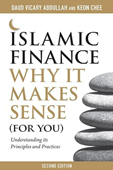
Islamic Finance: Why It Makes Sense (For You)
📌 Overview: This book demystifies Islamic finance by explaining its principles and benefits. It discusses various Islamic financial products and how they can be utilized by individuals and businesses. ✅ Why Read? ✔ Written in an accessible language, making it suitable for beginners. ✔ Highlights the ethical foundations of Islamic finance and its relevance to modern financial needs.Daud Vicary Abdullah and Keon Chee
-
- 2010
-
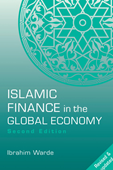
Islamic Finance in the Global Economy
📌 Overview: This book examines the development of Islamic finance within the context of the global economy. It explores the historical evolution, current practices, and future prospects of Islamic financial institutions. ✅ Why Read? ✔ Offers a global perspective on the integration of Islamic finance into the broader financial system. ✔ Analyzes the challenges and opportunities faced by the industry in a globalized world.Ibrahim Warde
-
- 2009
-
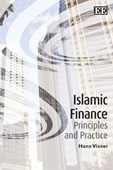
Islamic Finance: Principles and Practice
📌 Overview: This book explores the historical development of Islamic finance, comparing its principles to conventional finance and explaining key Shariah-compliant financial instruments. ✅ Why Read? ✔ Provides an academic yet practical approach to Islamic finance. ✔ Highlights real-world applications and challenges in Islamic banking.Hans Visser
-
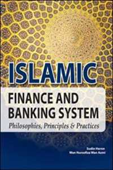
Islamic Finance and Banking System: Philosophies, Principles & Practices
📌 Overview: A comprehensive guide to Islamic banking and finance, explaining how financial institutions operate under Shariah law and the role of Islamic contracts like Murabaha (cost-plus financing) and Musharakah (partnerships). ✅ Why Read? ✔ Covers both theoretical and practical aspects of Islamic banking. ✔ Discusses ethical finance and its role in the global economy.Sudin Haron & Wan Nursofiza Wan Azmi
-
- 2006
-
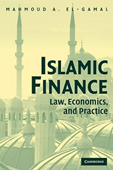
Islamic Finance: Law, Economics, and Practice
📌 Overview: This book provides a critical analysis of Islamic finance, exploring its legal foundations, economic implications, and practical applications. It delves into the convergence of Islamic finance with conventional financial systems and addresses contemporary challenges. ✅ Why Read? ✔ Offers a comprehensive critique of the Islamic finance industry. ✔ Bridges the gap between theory and practice, providing valuable insights for practitioners and scholars alike.Mahmoud A. El-Gamal
-
- 2002
-
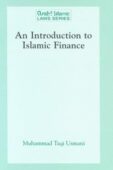
An Introduction to Islamic Finance
📌 Overview: This book provides a clear and concise introduction to Islamic finance, covering fundamental concepts such as Riba (interest), Gharar (uncertainty), and Mudarabah (profit-sharing). ✅ Why Read? Written by one of the most respected Islamic scholars in finance. Explains key Islamic banking contracts with practical examples.Mufti Muhammad Taqi Usmani
-
